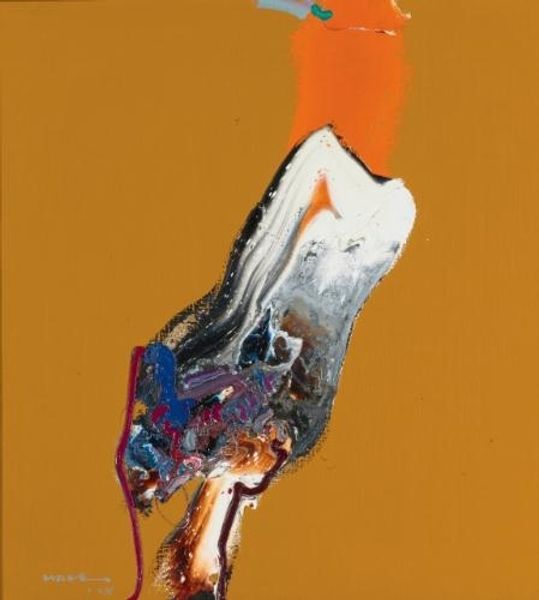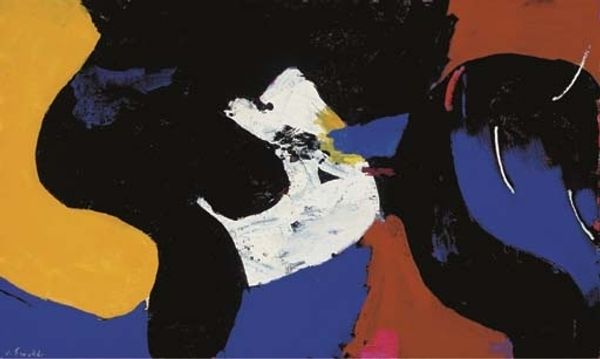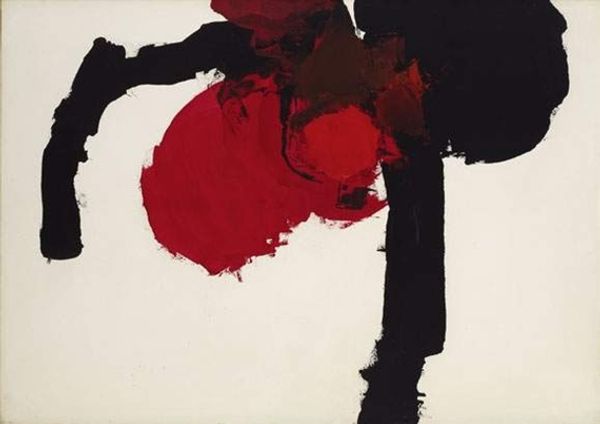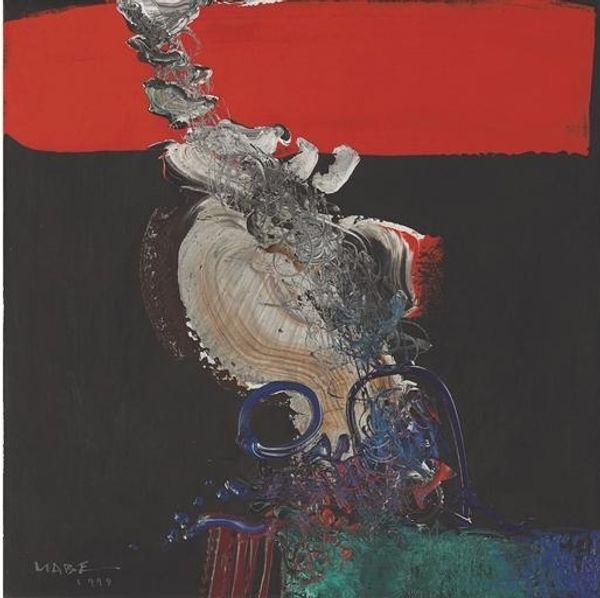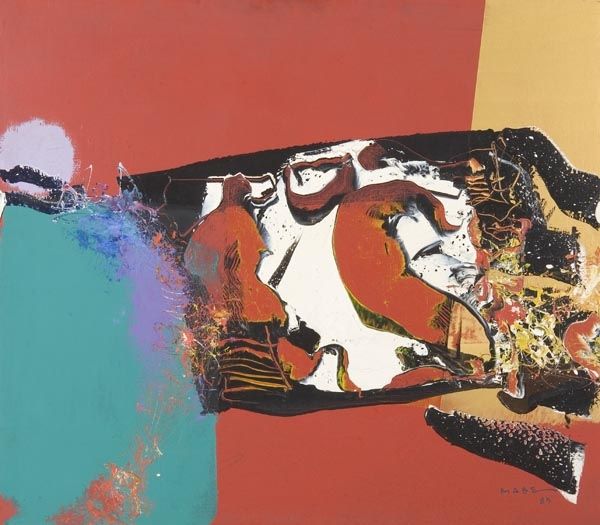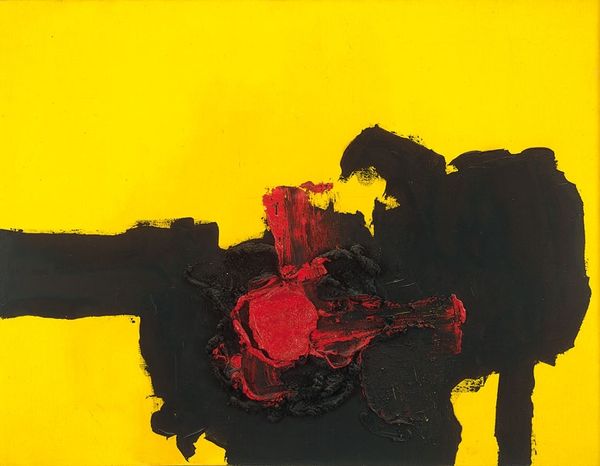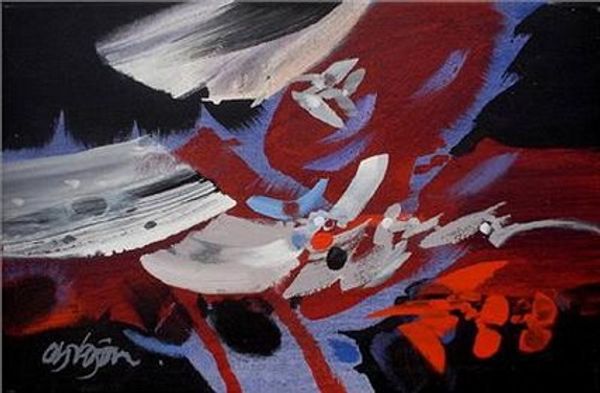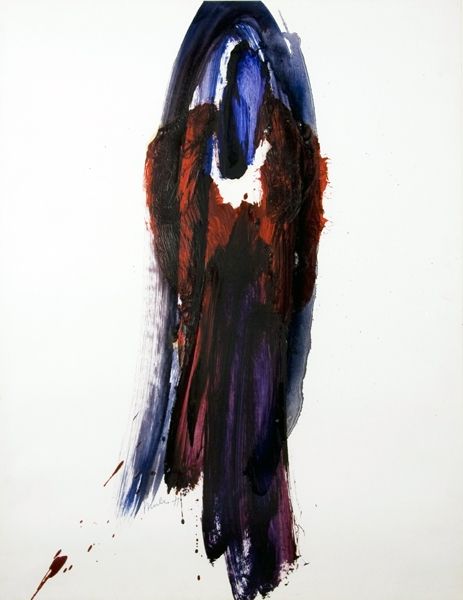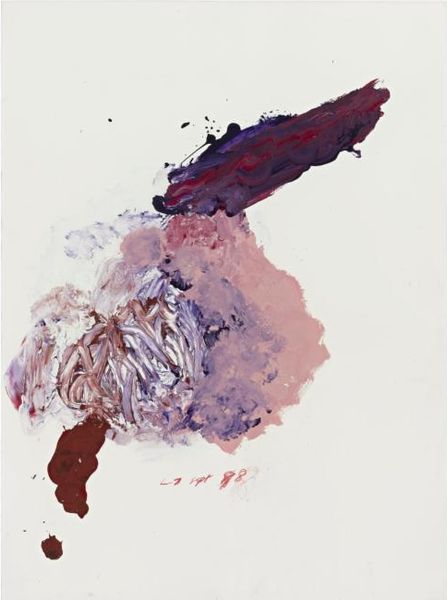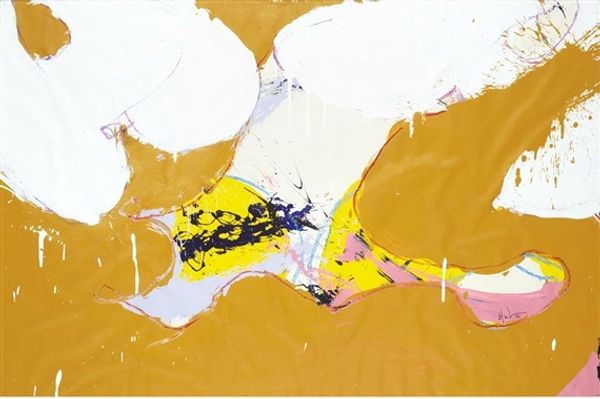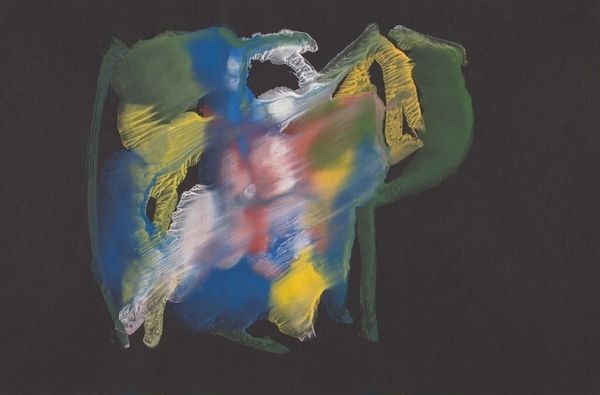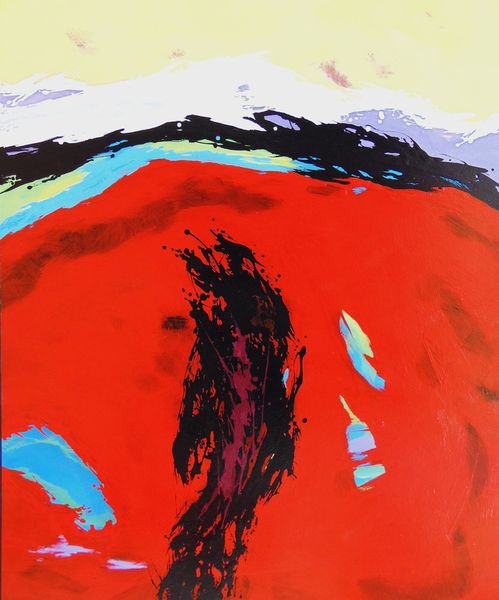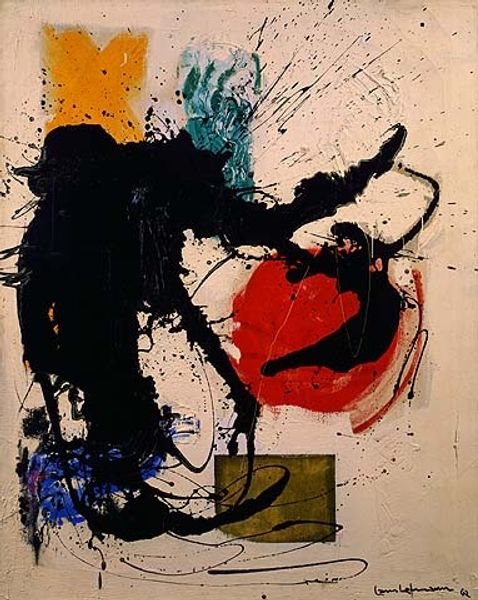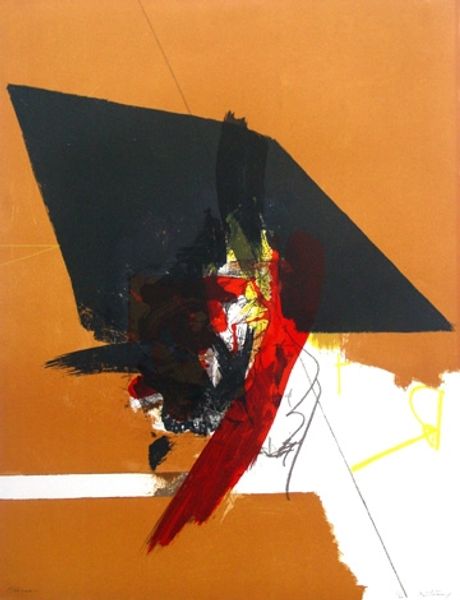
Copyright: Manabu Mabe,Fair Use
Editor: So, this is "Vozes," or "Voices," by Manabu Mabe, painted in 1976, using oil and acrylic with an impasto technique. The vibrant blue background really makes the dark, almost chaotic central form stand out. How do you interpret this work? Curator: It's a powerful piece. Considering Mabe's background, his Japanese-Brazilian identity significantly informs his visual vocabulary. The dark form you noted might evoke a sense of burden or internal struggle, especially potent in the mid-1970s amidst global political unrest. But note the title. What do you see or feel about these ‘voices’ within this composition? Editor: Well, the title makes me think of conflicting perspectives. Perhaps the bright blue tries to subdue or contain the darker elements? Is the application of thick paint maybe meant to create depth and indicate layering? Curator: Precisely. Think about impasto as a physical manifestation of emotion, of layers of experiences building upon one another. Notice how certain colors seem to fight or merge; that interplay is key to Mabe's symbolic language. It's also relevant to explore his engagement with both Japanese calligraphy and Western abstract expressionism here, don't you think? Editor: That makes sense. The brushstrokes have a certain calligraphic quality to them, even in their abstraction. And yes, I see the raw emotion in the textures – a contrast between the controlled and the chaotic. How does that tie into the cultural context? Curator: The work reflects a tension inherent to modernism’s identity. How can an artist create something personal and original amid inherited tradition and styles? Brazil, during this period, was reckoning with its own identity amid socio-political pressure. This portrait suggests someone grappling with those complex internal ‘voices.’ Editor: I hadn’t considered the work in that light, considering modernism’s impact on identity! This really adds layers to my understanding. Curator: Absolutely. Visual symbols operate within ever-shifting landscapes. We can appreciate both how Mabe contributes and how that era shaped his vocabulary.
Comments
No comments
Be the first to comment and join the conversation on the ultimate creative platform.
